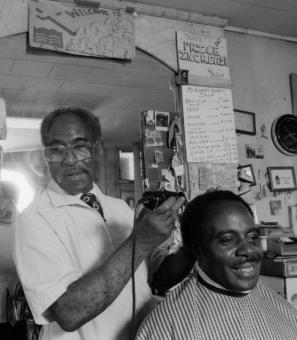"Our Neighbor" Bill Clinton
On Jan. 20, 1993, spring came early. That day marked the inauguration of William Jefferson Clinton to the presidency. The rhetoric surrounding the event evoked a changing season, a transformation of the earth, a departure from the twelve years of Republican rule that preceded this Democratic president-elect.
At his inauguration ceremony, Clinton remarked: “Today, we pledge that the era of deadlock and drift is over … A new season of American renewal has begun.”[1] He also said: “You, my fellow Americans, have forced the spring. Now we must do the work the season demands.”[2]
In the morning, Clinton attended an interfaith prayer service, featuring voices from numerous religions and denominations. Reverend Gardner Taylor of Brooklyn’s Concord Baptist Church also spoke of spring.
“On this fateful day,” he said, “when we enter a springtime, we believe, of new beginnings, there may be spring rains and storms, but it is springtime in America.”[3]
If spring is analogous to change, then Clinton’s choice of location for his inaugural morning prayer service was certainly a departure from precedent: for the first time in history, this event took place at a historically Black church: the Metropolitan African Methodist Episcopal Church.
Located at 1518 M St. N.W., the Metropolitan A.M.E. Church has been a pivotal center for Black liberation and worship for nearly 150 years.[4] It hosted the funeral of Frederick Douglass in 1895, and Rosa Parks in 2005, and lays claim to being the oldest continuously Black-owned plot of land in the District.[5]
Its Gothic edifice, dedicated in 1886, was erected of bricks made by former slaves.[6] The day it was dedicated, the church’s presiding bishop wrote: “The building is a monument to the love of the race, for the church of God, and for the good of man.”[7]
Church officials and clergy were pleased with Clinton’s choice. As Metropolitan administrator Roslyn Stewart Christian said: “He picked a neighborhood church … 1600 Pennsylvania Avenue is right around the corner. He intends to be our president, our leader and our neighbor.”[8]
The pastor, Reverend William P. DeVeaux, said: “What was told to me is that he is a man of sincere religious conviction and he has been very much involved in Black church experiences. He wanted to come because it is historic and downtown and he has worked with Black Methodists.”[9]
That January morning, business was most certainly not as usual at the Metropolitan A.M.E. Church. In preparation for the service, the floors were freshly polished and adorned with a new purple carpet.[10] The audience of 2,000 sat shoulder-to-shoulder, filling the building to capacity.[11] And, as one Washington Post article remarked: “Very few of Metropolitan’s members gained access to the service, and those who could not get in sat in an auditorium at the National Education Association across the street and watched the service on big-screen television sets.”[12]
Thousands of people arrived to M Street before sunrise, in hopes of catching a glimpse of the soon-to-be president.[13] A police motorcade delivered Bill Clinton, Vice President-elect Al Gore, and their families to Metropolitan A.M.E., just half a mile from the White House. As they entered the church, the audience burst into applause, which was followed by a moment of silence broken by a couple soft notes from the organ, and some light congregational coughs. The guests of honor sat down in the front row.[14]
The service included short addresses by a dozen spiritual leaders, which included Rabbi Eugene Levy, Imam Wallace Mohammed and Clinton’s pastor from home, Reverend Rex Horne. Alongside these prayers were musical interludes—gospel numbers and hymns sung by various cantors and two choirs behind the altar.
The C-SPAN coverage of the event reveals the different demeanors of the presidential cohort. The soon-to-be First Lady Hillary Clinton appears serene and focused for the duration of the service. Tipper and Al Gore look amused and composed. At times, Clinton’s daughter, Chelsea, and his mother, Virginia, appear hopelessly bored. Bill, by contrast, embodies emotional intensity throughout the service, laughing, singing along and even wiping away a tear on a few occasions (see 17:45-18:15 for a tear-stained Bill).
When it came time for the Metropolitan A.M.E. Church’s own pastor to speak, Reverend DeVeaux said:
“I am privileged on behalf of all the bishops of the African Methodist Episcopal Church, the members of the Metropolitan African Methodist Episcopal Church to welcome Governor and Mrs. Clinton, and the Senator and Mrs. Gore and their families, and all of my friends, my brothers and sisters who’ve come to share this day in a time of celebration and prayer together. We are delighted that you have chosen our church. We ask that you be at home and do not be strangers; come back again soon whenever you can.”[15]
It seems that President Clinton took this offer to heart, as he chose the Metropolitan A.M.E. Church as the destination for his second inaugural interfaith prayer service in 1997.
In recent history, the Metropolitan A.M.E. Church was in the news, as the D.C. church whose Black Lives Matter banner was stolen and burned during a December 2020 rally in support of the former President Donald Trump. The church has filed a lawsuit against the violent neo-fascist organization, the Proud Boys, for acts of terror and vandalism, that figures into a “long and terrible history of white supremacist mob violence targeting Black houses of worship.”[16]
During the inauguration of President Joseph Biden on Jan. 20, 2021, the world was electrified by Amanda Gorman’s poem “The Hill We Climb.” Inaugural poetry is a relatively young tradition, only invoked by four presidents since John F. Kennedy chose Robert Frost in 1961.[17] On Jan. 20, 1993, President Clinton continued the tradition, asking Maya Angelou to compose a poem in honor of the day.
“On the Pulse of Morning,” proclaimed the sentiment that after darkness and struggle, there is hope and transformation. Angelou’s poem concludes:
Here, on the pulse of this new day
You may have the grace to look up and out
And into your sister’s eyes, and into
Your brother’s face, your country
And say simply
Very simply
With hope—
Good Morning.[18]
Footnotes
- ^ Ann Devroy and Ruth Marcus, “Clinton Takes Oath as 42nd President Asking Sacrifice, Promising Renewal.” The Washington Post. Jan 21, 1993. https://www.washingtonpost.com/wp-srv/national/longterm/inaug/history/stories/clint92.htm.
- ^ Thomas L. Friedman, “The Inauguration; Clinton Takes Oath as 42nd President, Urging Sacrifice to ‘Renew America.’" The New York Times. Jan 21, 1993. https://www.nytimes.com/1993/01/21/us/inauguration-clinton-takes-oath-42d-president-urging-sacrifice-renew-america.html.
- ^ “Inaugural Interfaith Church Service.” CSPAN, Jan 20, 1993, (1:14:58). https://www.c-span.org/video/?37247-1/inaugural-interfaith-church-service.
- ^ Jacqueline Trescott, “Clinton’s Big Day to Start at Black Church.” The Washington Post. Dec 5, 1992.
- ^ Michael E. Ruane, “Historic D.C. Church Lands on Most-Endangered List.” The Washington Post. May 19, 2010. https://www.washingtonpost.com/wp-dyn/content/story/2010/05/18/ST2010051806169.html?sid=ST2010051806169.
- ^ Jacqueline Trescott, “Clinton’s Big Day.”
- ^ Michael E. Ruane, “Historic D.C. Church.”
- ^ DeNeen L Brown, Patricia Davis, “’Our President… Our Neighbor’; Historic Black Church Near White House Plays Host to First Worshipper.” The Washington Post. Jan 21, 1993.
- ^ Jacqueline Trescott, “Clinton’s Big Day.”
- ^ DeNeen L Brown, Patricia Davis, “’Our President… Our Neighbor.’”
- ^ Ibid.
- ^ Ibid.
- ^ Ibid.
- ^ “Inaugural Interfaith Church Service.” CSPAN, (00:00-04:15). https://www.c-span.org/video/?37247-1/inaugural-interfaith-church-service.
- ^ “Inaugural Interfaith Church Service.” CSPAN, Jan 20, 1993, (25:11). https://www.c-span.org/video/?37247-1/inaugural-interfaith-church-servi….
- ^ Andrew Beaujon, “Historic DC Black Church Sues the Proud Boys.” Washingtonian. Jan 4, 2021. https://www.washingtonian.com/2021/01/04/historic-dc-black-church-sues-the-proud-boys/.
- ^ "Inaugural Poems in History.” Poets.org. https://poets.org/inaugural-poems-history.
- ^ Maya Angelou, “On the Pulse of Morning.” (1993). Poets.org. https://poets.org/poem/pulse-morning.


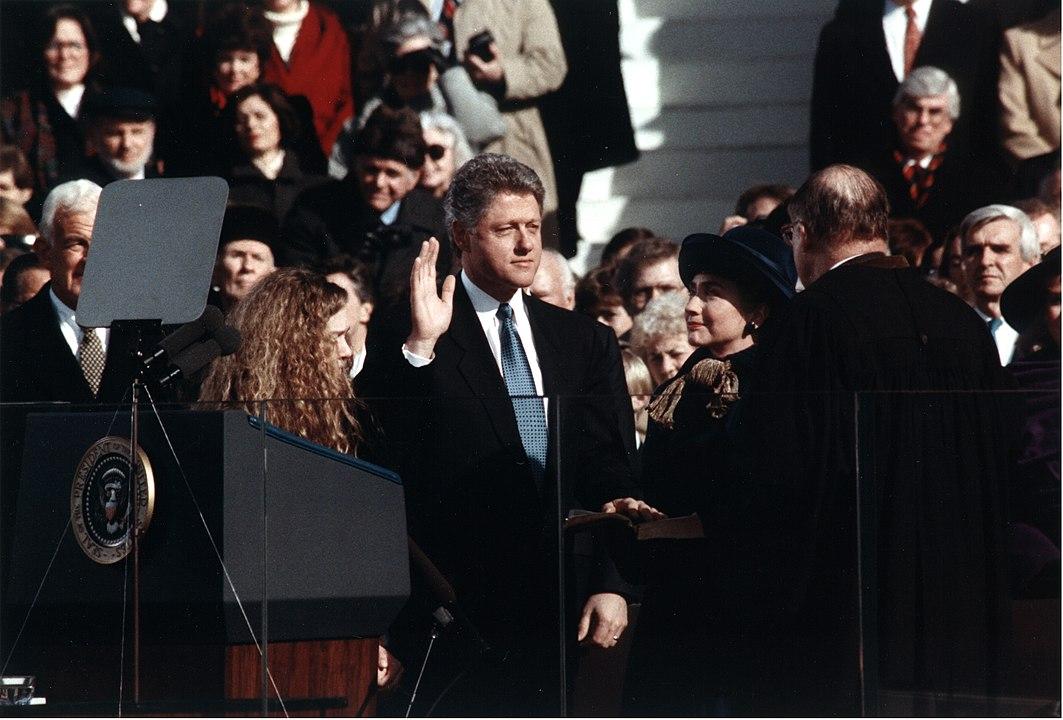
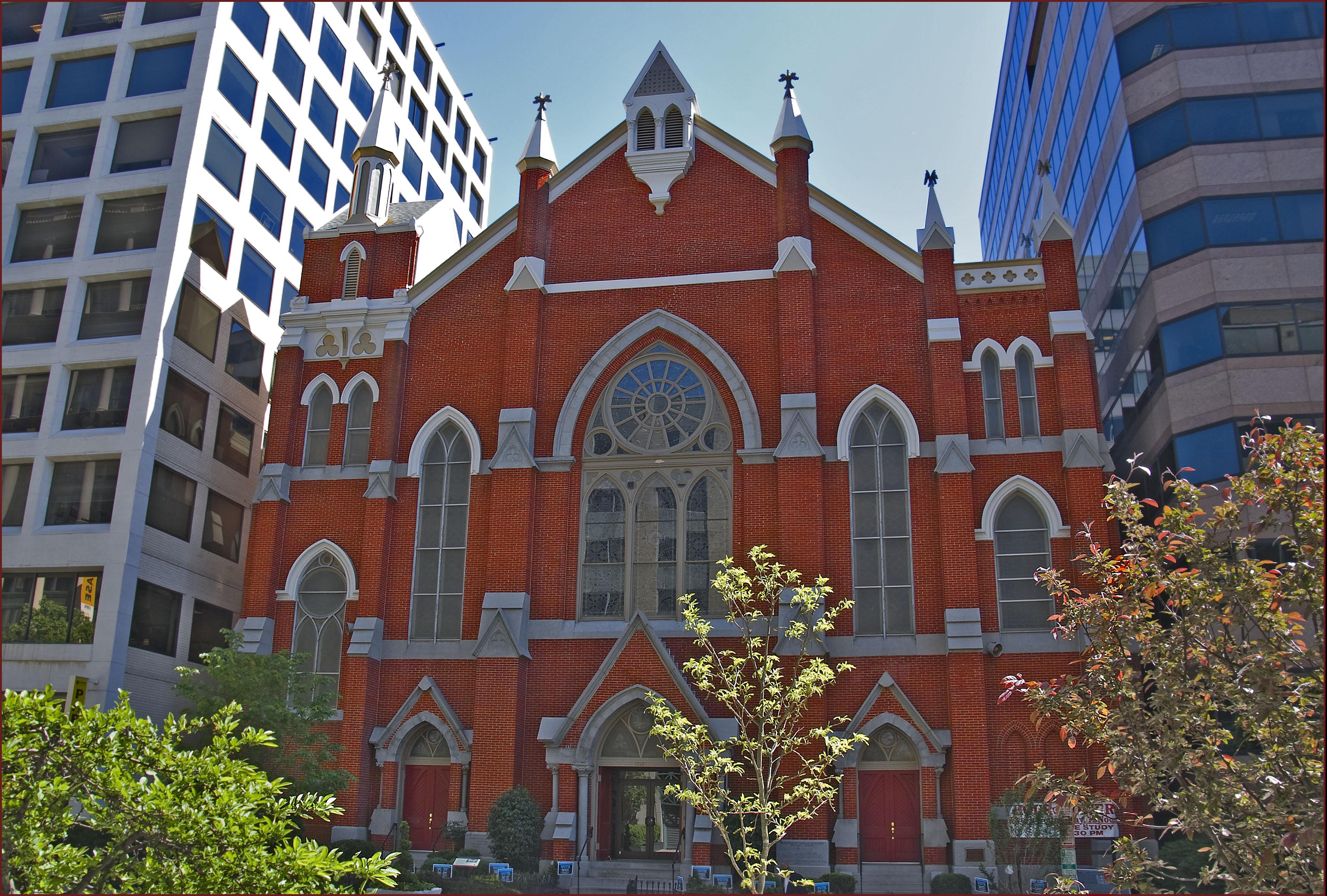
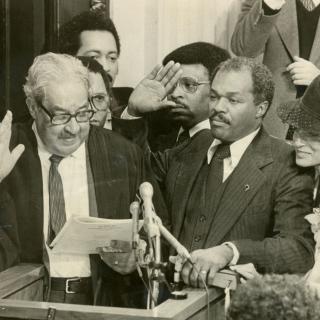
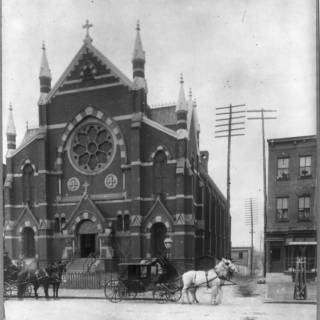
![“The restored Lincoln Theatre, once a premier African-American entertainment venue, Washington, D.C.” (Photo Source: The Library of Congress) Highsmith, Carol M, photographer. The restored Lincoln Theatre, once a premier African-American entertainment venue, Washington, D.C. United States Washington D.C, None. [Between 1980 and 2006] Photograph. https://www.loc.gov/item/2011636050/. “The restored Lincoln Theatre, once a premier African-American entertainment venue, Washington, D.C.” (Photo Source: The Library of Congress) Highsmith, Carol M, photographer. The restored Lincoln Theatre, once a premier African-American entertainment venue, Washington, D.C. United States Washington D.C, None. [Between 1980 and 2006] Photograph. https://www.loc.gov/item/2011636050/.](/sites/default/files/styles/crop_320x320/public/17856v.jpg?itok=KiWAaHRq)
![Sketch of the mythical fuan by Pearson Scott Foresman. [Source: Wikipedia]](/sites/default/files/styles/crop_320x320/public/2023-10/Goatman_Wikipedia_Faun_2_%28PSF%29.png?h=64a074ff&itok=C9Qh-PE1)











